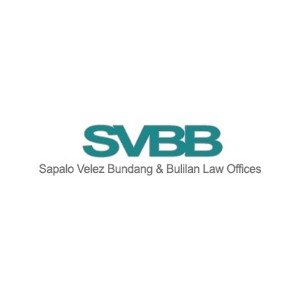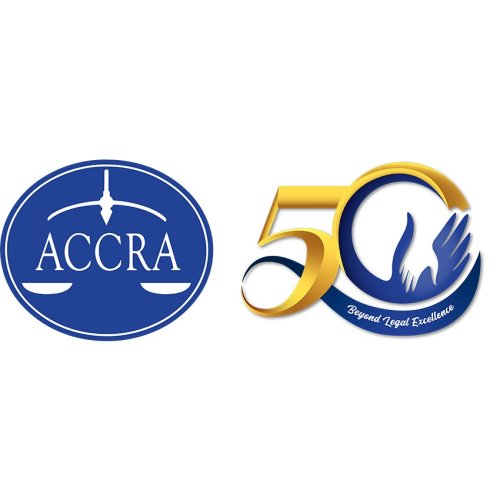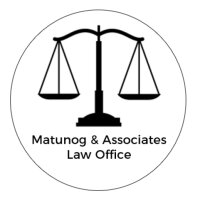Best Art & Cultural Property Law Lawyers in Davao City
Share your needs with us, get contacted by law firms.
Free. Takes 2 min.
List of the best lawyers in Davao City, Philippines
About Art & Cultural Property Law in Davao City, Philippines
Art & Cultural Property Law in Davao City, Philippines, is a specialized field that deals with issues related to the ownership, protection, and restitution of cultural property and artworks. This area of law seeks to preserve the rich cultural heritage of the Philippines by implementing measures that prevent the illegal trade and export of cultural items, ensuring that the cultural identity and history of the nation are safeguarded. Given Davao City's unique cultural landscape and its growing art scene, understanding the legal framework that governs these matters is essential for artists, creators, collectors, and cultural institutions.
Why You May Need a Lawyer
There are several situations where individuals and organizations may require legal assistance in Art & Cultural Property Law in Davao City:
- Acquiring or selling cultural property or artwork and needing to verify the provenance and legal title.
- Disputes over copyright infringement or intellectual property rights related to artistic works.
- The illegal export or import of cultural artifacts and the potential legal ramifications.
- Seeking restitution or repatriation of cultural artifacts to rightful owners or origin countries.
- Inheritance disputes involving artworks or cultural items.
- Legal issues related to arts and culture funding, grants, and sponsorship agreements.
Local Laws Overview
The key aspects of local laws relevant to Art & Cultural Property Law in Davao City include:
- Cultural Heritage Act: This law emphasizes the protection and preservation of the Philippine cultural heritage, involving identification, documentation, and safeguarding of cultural property.
- Intellectual Property Code: Governs copyrights and intellectual property rights associated with artworks, ensuring creators can protect and monetize their work.
- National Commission for Culture and the Arts (NCCA): Oversee cultural policies and initiatives, setting guidelines for the protection and promotion of cultural heritage.
- Local Regulations: Davao City ordinances that may affect the display, sale, and restoration of cultural properties within the city.
Frequently Asked Questions
What is considered cultural property under Philippine law?
Cultural property includes historical sites, artifacts, and artworks that hold significance to the cultural heritage of the Philippines. This encompasses tangible items with historical, cultural, artistic, and scientific value.
How can I verify the authenticity of an artwork?
To verify the authenticity of an artwork, engage professional appraisers or experts, request provenance records, and consider legal due diligence with the assistance of a lawyer specializing in Art Law.
What should I do if I suspect a piece of art is stolen?
If you suspect art is stolen, immediately report it to local authorities and consider seeking legal advice to ensure proper handling and potential recovery or restitution actions.
Are there restrictions on exporting art from the Philippines?
Yes, certain cultural properties and artworks are protected under national laws and cannot be exported without proper clearance from governing bodies like the National Museum or NCCA.
How do I legally transfer ownership of an artwork?
Transferring ownership of an artwork involves ensuring clear title, drafting a sales agreement, and conducting due diligence to confirm the artwork's provenance and authenticity.
Can cultural items be reclaimed by their country of origin?
Yes, countries, including the Philippines, can seek the repatriation of cultural items illegally exported or held abroad through international agreements and legal actions.
What laws protect artists' intellectual property in Davao City?
Artists are protected under the Intellectual Property Code of the Philippines, which covers copyright laws safeguarding their creative works against unauthorized use.
Are there legal supports for conservation of cultural property?
Yes, there are local and national initiatives focused on conservation efforts, often supported by laws that provide funding and technical support for preserving cultural heritage.
What are the potential penalties for violating cultural property laws?
Penalties can range from fines, imprisonment, and confiscation of illicitly acquired cultural properties, depending on the nature and severity of the violation.
Who regulates the sale of art and cultural property in the Philippines?
The NCCA, National Museum, and other government agencies play key roles in regulating and monitoring the trade and preservation of cultural and artistic properties.
Additional Resources
For further guidance and resources, consider reaching out to the following:
- National Commission for Culture and the Arts (NCCA): The primary government body overseeing cultural heritage laws.
- National Museum of the Philippines: Provides guidelines on the handling and export of cultural properties.
- Local Art Galleries and Cultural Institutions: Many offer legal support resources or connections to law specialists in art and cultural property.
- Philippine Intellectual Property Office: For issues related to copyright and intellectual property rights.
Next Steps
If you need legal assistance with Art & Cultural Property Law in Davao City, consider these steps:
- Research and contact a local attorney specializing in Art & Cultural Property Law.
- Gather all relevant documents and information related to your case or concern.
- Schedule a consultation to discuss your legal needs and explore potential solutions.
- Stay informed about current laws and regulations to ensure compliance and protection of your interests.
Lawzana helps you find the best lawyers and law firms in Davao City through a curated and pre-screened list of qualified legal professionals. Our platform offers rankings and detailed profiles of attorneys and law firms, allowing you to compare based on practice areas, including Art & Cultural Property Law, experience, and client feedback.
Each profile includes a description of the firm's areas of practice, client reviews, team members and partners, year of establishment, spoken languages, office locations, contact information, social media presence, and any published articles or resources. Most firms on our platform speak English and are experienced in both local and international legal matters.
Get a quote from top-rated law firms in Davao City, Philippines — quickly, securely, and without unnecessary hassle.
Disclaimer:
The information provided on this page is for general informational purposes only and does not constitute legal advice. While we strive to ensure the accuracy and relevance of the content, legal information may change over time, and interpretations of the law can vary. You should always consult with a qualified legal professional for advice specific to your situation.
We disclaim all liability for actions taken or not taken based on the content of this page. If you believe any information is incorrect or outdated, please contact us, and we will review and update it where appropriate.











